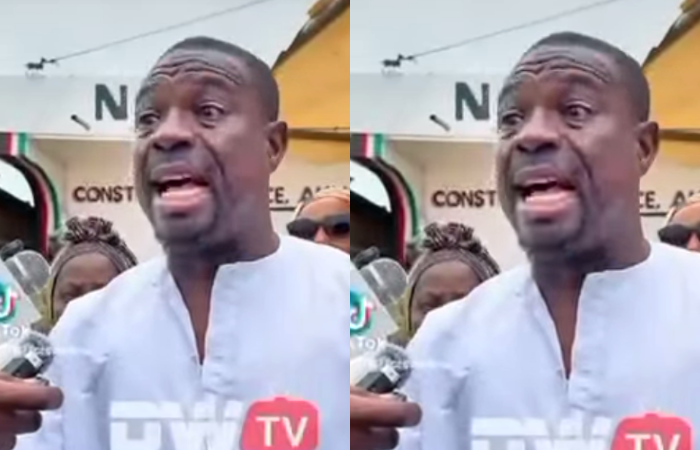The Eastern South Regional Police Command has initiated an investigation into alleged death threats made by Alhaji Abdul Wahab, the Abuakwa North Communications Officer of the National Democratic Congress (NDC), against three prominent political figures. The threats, captured in a widely circulated video, were directed at Minority Leader Alexander Afenyo-Markin, Minority Chief Whip Frank Annoh-Dompreh, and Henry Nana Boakye, the National Organizer of the ruling New Patriotic Party (NPP). Wahab’s arrest, caution, and subsequent release on bail underscore the gravity of the allegations and the police’s commitment to ensuring due process. He is required to report to the Regional Police Headquarters in Kyebi on September 15, 2025, for further questioning. The police have pledged a thorough and impartial investigation, promising to keep the public informed about developments in the case, emphasizing transparency and accountability in their handling of the matter.
The incident that precipitated the alleged threats occurred during the Akwatia by-election on September 2, 2025. The political atmosphere was already charged, and the removal of NDC posters from a vehicle parked outside the party’s constituency office further inflamed tensions. Reports indicate that individuals associated with Minority Leader Afenyo-Markin were responsible for removing the posters. This action sparked outrage among NDC supporters and allegedly led Wahab to issue the threats during a subsequent media interview. The police investigation seeks to ascertain the precise nature of the threats and the context in which they were made to determine the appropriate course of action.
The case highlights the volatile nature of political discourse in Ghana, particularly during election periods. The incident involving the posters became a flashpoint, demonstrating how seemingly minor actions can escalate into significant confrontations. This incident underscores the need for political leaders and their supporters to exercise restraint and engage in responsible political conduct. The swift police action reflects a commitment to upholding the rule of law and maintaining peace during politically sensitive periods. The investigation will likely delve into the events leading up to the alleged threats, including the actions of those who removed the posters and the overall atmosphere during the by-election.
The alleged threats by Wahab, a communication officer for the NDC, raise concerns about the role of party officials in inflaming political tensions. While freedom of speech is a fundamental right, it carries responsibilities, and political leaders are expected to uphold a standard of decorum and refrain from inciting violence or hatred. The case against Wahab will likely examine the extent to which his words constitute a genuine threat and whether they crossed the line from protected political speech to criminal incitement. The outcome of the investigation could have significant implications for future political discourse in Ghana, setting a precedent for the acceptable boundaries of political rhetoric.
The police’s commitment to a transparent and fair investigation is crucial for maintaining public trust in the justice system. By providing regular updates on the progress of the case, the authorities aim to demonstrate impartiality and accountability in their handling of the matter. This transparency is essential to ensure that the investigation is perceived as credible and that any subsequent actions taken are seen as legitimate. The police’s pledge to keep the public informed is a positive step towards fostering confidence in their ability to address sensitive political matters objectively and effectively.
The incident in Akwatia serves as a reminder of the importance of peaceful and respectful political engagement. The alleged threats, the removal of posters, and the ensuing tension highlight the need for political actors to prioritize dialogue and constructive engagement over acts of provocation and inflammatory rhetoric. The investigation into Wahab’s alleged threats will not only determine his individual culpability but also send a broader message about the importance of responsible political conduct in Ghana. The outcome of this case could significantly impact the political landscape and contribute to shaping a more peaceful and democratic future.


